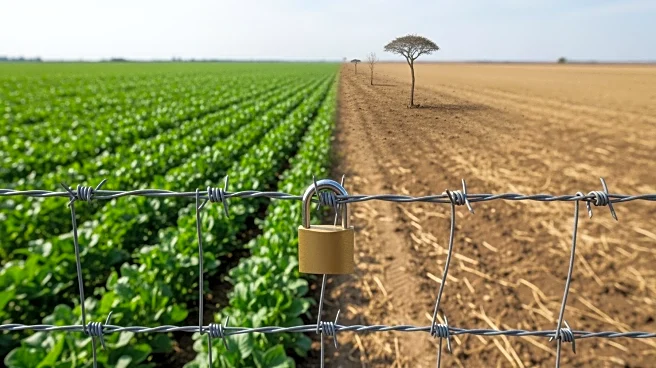What's Happening?
Mexico's agriculture minister, Julio Berdegue, is set to travel to Washington to negotiate with U.S. Secretary of Agriculture Brooke Rollins regarding the reopening of the U.S.-Mexico border for cattle imports. This comes in the wake of a screwworm outbreak
that has led to the U.S. closing its borders to Mexican cattle since May. The screwworm, a parasite that affects warm-blooded animals, has been spreading northward from Central America into Mexico, causing significant concern for livestock industries in both countries. Mexican President Claudia Sheinbaum expressed hope that Berdegue's visit will result in an agreement to reopen the border.
Why It's Important?
The closure of the U.S. border to Mexican cattle has strained trade relations between the two countries, which are significant trading partners. The screwworm outbreak poses a threat to livestock, potentially leading to economic losses for farmers and affecting beef supply chains. The U.S. administration, under President Trump, is also focused on reducing beef prices domestically, which adds pressure to resolve the border closure. The situation highlights the interconnectedness of agricultural markets and the impact of biosecurity issues on international trade.
What's Next?
The outcome of the discussions between Berdegue and Rollins will be crucial in determining the next steps for both countries' livestock industries. If an agreement is reached, it could lead to the reopening of the border, alleviating some of the economic pressures on Mexican cattle farmers. However, the U.S. administration's decision to increase imports of Argentine beef to lower domestic prices may complicate negotiations, as it could affect U.S. ranchers' interests.















